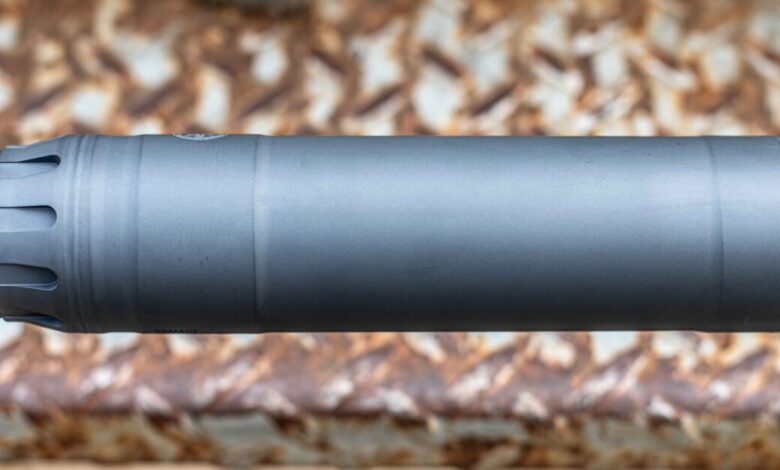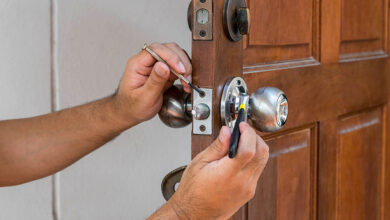Factors That Can Disqualify You From Owning a Suppressor

Owning a suppressor, commonly referred to as a “silencer,” can be a complex legal process. Suppressors are devices designed to reduce the noise and muzzle flash of a firearm when it’s fired. They are regulated under strict federal laws in many countries, particularly in the United States.
Understanding Suppressor Ownership
Suppressors are classified as regulated items under the National Firearms Act (NFA) of 1934. To legally own one, individuals must comply with both federal and state laws, which include undergoing extensive background checks and meeting specific criteria.
In most places, purchasing a suppressor involves the following steps:
- Applying to the Bureau of Alcohol, Tobacco, Firearms, and Explosives (ATF).
- Paying a federal tax stamp fee, typically $200.
- Undergoing a detailed background check.
Despite these regulations, not everyone is eligible to own a suppressor. Check out the reasons that might disqualify you from ownership
Disqualifications for Suppressor Ownership
1. Criminal Record
Having a criminal record can prevent you from owning a suppressor. The ATF conducts a thorough background check to ensure applicants meet the legal requirements. Some disqualifying criminal offenses include:
- Felony Convictions: Anyone convicted of a felony offense is prohibited from owning a suppressor. Felonies are considered serious crimes, and individuals with such convictions are typically restricted from owning firearms or suppressors.
- Misdemeanor Domestic Violence Convictions: Even certain misdemeanor offenses, such as domestic violence, can disqualify an individual under federal law.
- Pending Criminal Charges: If you have pending Criminal charges you cannot own a suppressor until the case is resolved.
2. Drug-Related Issues
The ATF scrutinizes applicants for any history of illegal drug use. This includes:
- Illegal Drug Use: Individuals who use or are addicted to illegal drugs, including marijuana (even if legal under state law), are disqualified.
- Controlled Substance Abuse: A documented history of substance abuse can also prevent suppressor ownership.
3. Mental Health Conditions
Mental health is another area closely examined during the application process. You may be disqualified if:
- You have been adjudicated as mentally defective or incompetent by a court.
- You have been committed to a mental institution. These conditions indicate that an individual may not be able to responsibly handle firearms or suppressors.
4. Non-U.S. Citizenship
In many cases, suppressor ownership is limited to U.S. citizens or permanent legal residents. Non-citizens may face restrictions depending on federal and state laws.
Legal Process and Requirements
The Role of ATF Form 4
To own a suppressor, you must fill out ATF Form 4, which includes your personal information and fingerprints. Failure to complete this form accurately can lead to delays or disqualification.
The $200 Tax Stamp
All suppressor purchases require a $200 tax stamp. This fee is non-refundable, so if you’re disqualified after applying, the money is not returned.
Background Check Delays
The background check process for suppressor applications can take several months. If any disqualifying factors are found, the application will be denied.
Conclusion
Owning a suppressor is a privilege that comes with significant responsibilities and legal requirements. Disqualifications, such as a criminal record, drug abuse, or mental health issues, are taken seriously by the ATF to ensure public safety. Before applying for suppressor ownership, ensure you meet all federal and state requirements and understand the legal obligations involved.
By adhering to the regulations and understanding what disqualifies you from owning a suppressor, you can navigate the process responsibly and legally. Always consult local laws and seek professional legal advice if you are unsure about your eligibility.
FAQs
1. What happens if I lie on my suppressor application?
Providing false information on your suppressor application is a federal offense. This can lead to fines, imprisonment, and a lifetime ban on firearm ownership.
2. Can I transfer my suppressor to someone else?
Yes, but the transfer must go through the ATF and include the same tax stamp and background check process as the original purchase.
3. Are suppressors legal in every state?
No, suppressors are prohibited in some states. Check your local laws before purchasing.
4. How long does it take to get approved for a suppressor?
The approval process can take several months, depending on the ATF’s workload and the completeness of your application.




